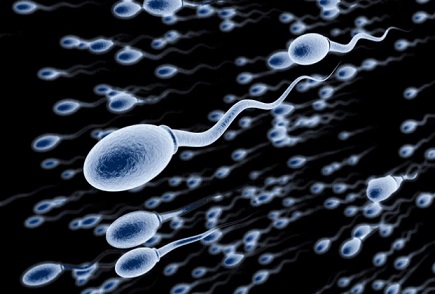Nikhil Prasad Fact checked by:Thailand Medical News Team Jun 26, 2024 10 months, 18 hours, 17 minutes ago
Reproductive Medicine: In the intricate world of male fertility, one molecule stands out for its remarkable influence: retinoic acid (RA). A derivative of vitamin A, RA plays a crucial role in the production of sperm, making it a vital player in male reproduction. This
Reproductive Medicine news report is based on a study review conducted by researchers from China that explored the fascinating journey of RA in the testes, its role in spermatogenesis, and its potential applications in treating male infertility and developing new contraceptives.
 Retinoic Acid And Male Fertility
The Basics of Spermatogenesis
Retinoic Acid And Male Fertility
The Basics of Spermatogenesis
Spermatogenesis is the process by which sperm are produced in the male testes. This complex journey begins with undifferentiated stem cells called spermatogonia, which either renew themselves or embark on a path of differentiation. As they progress, these cells undergo several stages, including meiosis, where they halve their genetic material, and eventually transform into mature spermatozoa ready for fertilization. This entire process is finely regulated by the testicular environment, with RA playing a pivotal role.
RA: The Key to Sperm Production
RA is essential at various stages of spermatogenesis. It is involved in the differentiation of spermatogonia, the initiation of meiosis, and the maturation of sperm. Without sufficient RA, spermatogenesis halts, leading to infertility. Interestingly, this condition can often be reversed with RA supplementation, highlighting its critical role in maintaining male fertility.
How RA Works in the Testes
The journey of RA in the testes begins with vitamin A obtained from food. The liver stores vitamin A and releases it as needed, where it travels to the testes and is converted into RA through a series of enzymatic reactions. Sertoli cells and spermatogenic cells in the testes are capable of synthesizing RA, which then acts on nearby cells to promote their development into mature sperm.
RA Pulses: A Rhythmic Dance
RA levels in the testes are not constant; they pulse in a rhythmic manner, essential for the continuous production of sperm. This pulsatile nature ensures that spermatogenesis proceeds asynchronously, allowing for a steady supply of sperm. These RA pulses are generated by Sertoli cells with assistance from other testicular cells, and maintaining the right balance of RA is critical for proper sperm development.
Receptors and Degradation of RA
RA exerts its effects by binding to specific receptors, namely RA receptors (RARs) and retinoid X receptors (RXRs), located in the nuclei of testicular cells. These receptors regulate the expression of genes crucial for spermatogenesis. Once its job is done, RA is degraded by enzymes such as CYP26B1 to prevent overactivation and ensure precise control over sperm production.
RA and Male Infertility
Male infertility affects millions worldwide, and RA has sho
wn promise in treating various reproductive disorders. For instance, RA supplementation has been effective in restoring fertility in cases of vitamin A deficiency. It also shows potential in treating conditions like cryptorchidism (undescended testes) and varicocele (enlarged veins in the scrotum), which can impair sperm production.
In a study, men with low sperm counts who received RA saw improvements in their sperm concentration and morphology, underscoring the potential of RA-based therapies. However, the dosage must be carefully managed, as excessive RA can have adverse effects on reproduction.
RA in Male Contraception
The search for effective male contraceptives has led researchers to explore RA inhibitors. By blocking RA synthesis or its receptors, it's possible to disrupt spermatogenesis and provide a reversible form of male contraception. One promising candidate is WIN18446, which inhibits RA biosynthesis, rendering males temporarily infertile. However, side effects like severe reactions to alcohol consumption have hampered its development.
Other compounds, such as BMS-189453 and YCT-529, have shown potential as RA receptor antagonists. These drugs inhibit spermatogenesis effectively and reversibly, paving the way for new non-hormonal male contraceptives. YCT-529, for instance, has entered clinical trials and could be a significant advancement in the field of contraception.
The Future of RA Research
Understanding the molecular mechanisms of RA in spermatogenesis is crucial for developing new treatments for male infertility and innovative contraceptives. Ongoing research aims to map out the precise pathways through which RA regulates sperm production, offering hope for those struggling with infertility and providing new options for family planning.
Conclusion
Retinoic acid, a derivative of vitamin A, plays a vital role in male fertility by regulating the production of sperm. Its influence spans various stages of spermatogenesis, from the differentiation of spermatogonia to the maturation and release of spermatozoa. With its potential applications in treating male infertility and developing new contraceptives, RA continues to be a molecule of great interest in reproductive biology. Understanding its mechanisms further could revolutionize the way we approach male reproductive health.
The study findings were published in the peer reviewed Cells.
https://www.mdpi.com/2073-4409/13/13/1092
For the latest on
Reproductive Medicine, keep on logging to Thailand Medical New.
Read Also:
https://www.thailandmedical.news/news/understanding-erectile-dysfunction-causes-and-natural-treatments
https://www.thailandmedical.news/news/breaking-study-finds-that-hepatitis-e-virus-infects-and-replicates-in-men-s-testicles-and-sertoli-cells
